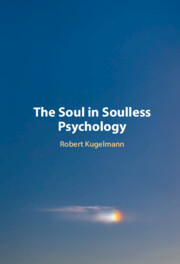The Soul in Soulless Psychology
Modern psychology began with a rejection of the 'soul' as relevant for the science. How did that come about? The Soul in Soulless Psychology explores that question and details arguments for a soulless psychology. However, there was also opposition to this notion. This alternative history of psychology examines those who dissented from a 'psychology without a soul,' including Neoscholastic psychologists and others, such as Ladd, Münsterberg, and McDougall. Substitutions for the soul – such as self, personality, and the brain – show that even with the soul absent, its concerns were present. Innovative re-thinkings of the soul are addressed, as well as attempts at restoration of the soul into psychology. Moreover, historical psychologies of the soul kept the soul in view. In the twenty-first century, we find soul as a noun, an adjective, and a verb, all pointing to the necessity of the soul for psychology.
- Demonstrates that the soul is still an important concept for the science of psychology and invites readers to consider how the soul could have a place in psychology
- Exemplifies an alternative reading of the history of psychology, highlighting that there can be many ways to narrate the past
- Shows the interconnectedness between psychological, spiritual, and religious concerns
- Provides a heightened sense of awareness of our unfinished nature, so that the imagination is important in psychological reflections
Product details
February 2023Adobe eBook Reader
9781009301237
0 pages
This ISBN is for an eBook version which is distributed on our behalf by a third party.
Table of Contents
- 1. Re-Introducing the soul
- 2. Psychology without a soul
- 3. Dissenters I: the neoscholastics
- 4. Dissenters II: other affirmations of the soul in early modern psychology
- 5. Substitution: in the wake of 'psychology without a soul'
- 6. Innovation
- 7. Restoration
- 8. Historical psychologies of the soul
- 9. Soul as a psychological category.



